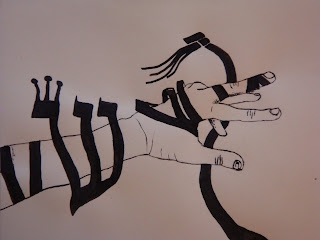A few months ago, I devoured
A High Wind in Jamaica by Richard Hughes. One of the best books you probably have never heard of. For some reason this book has sailed beneath the radar of most high school and college curricula for decades. To be sure, it is a highly regarded classic, and even made it onto the
Modern Library's top 100 Novels of the 20th Century at 71.

What's so compelling about this novel? As is my want with book reviews, I'm not going to attempt a plot summary (besides:
Amazon got their B.S. in writing summaries). I'm not going to dwell on its wicked and unsparing use of clever irony, that it was visionary for its time, the subject matter, the ineffible prose that Hughes hews to his intent. For a study in great writing alone, each of the traits makes it worthwhile. Instead, I want to share why I personally think this book is so deserving the title masterpiece. Perhaps it's fitting with
High Wind's opening, so teeming with biodiversity, that my admiration lies in the archives of zoological curiosities.
I once read about an uncanny documented phenomena in the animal kingdom: predator clans will on rare occasion adopt and take care of a member of their prey. No kidding, scientists have seen prey striding in front of their apathetic and unconcerned lethal companions with innocent bravado. They pay it no mind.
The canonical case cited concerned a rattle snake den and a field mouse. It is not known how a field mouse managed to insert itself amongst the population of snakes, but it had. Scientists documented it running about these deadly serpents in broad daylight, and they responded with which would be most accurately anthropomorphized as "bored affection".
Then one day a foreign snake crossed into their territory. It saw the field mouse, and instantaneously lunged critically wounding it. No one wants to pass up a free lunch. Almost immediately the rattlers which had formerly looked after this mouse pounced, tearing it to shreds.
The Bas-Thorton children are tossed from their Jamaican kingdom and find themselves captives of pirates after a series of random natural disasters and the maladroit negotiations of a bungling sea captain. They succeed in befriending the pirates and absorb them in their games and fancies. You can't call it Stockholm Syndrome because the children are hardly cognizent of the greater events governing the radical direction their lives have taken.
The lines blur from the outset as to who are the snakes and who are the mice, but the succinct conclusion brings it to chilling focus. The fact that we instinctively and painfully relate to each of the twists and characters makes the conclusion all the more unnerving.
It's a relatively quick read, and well worth it.










